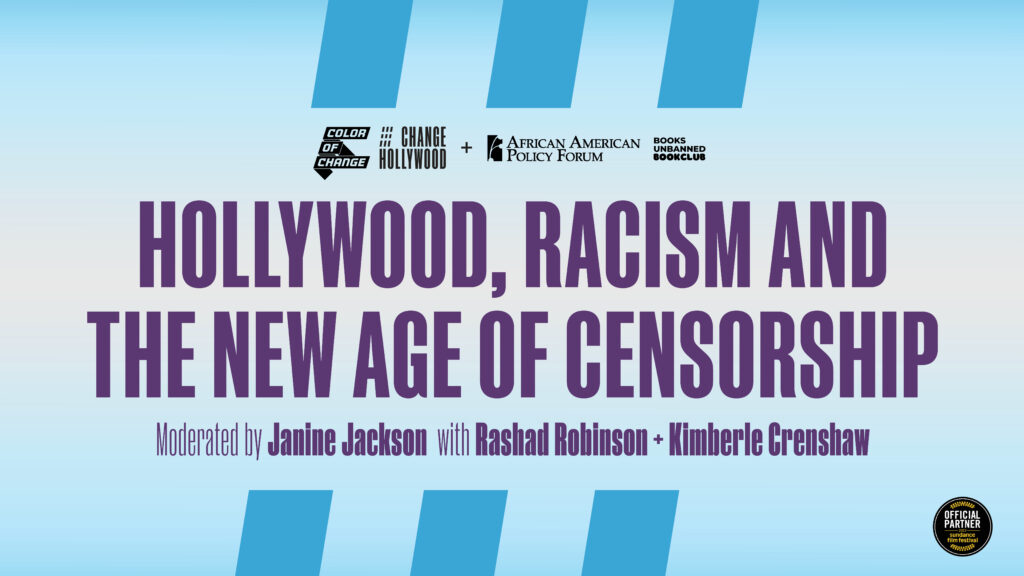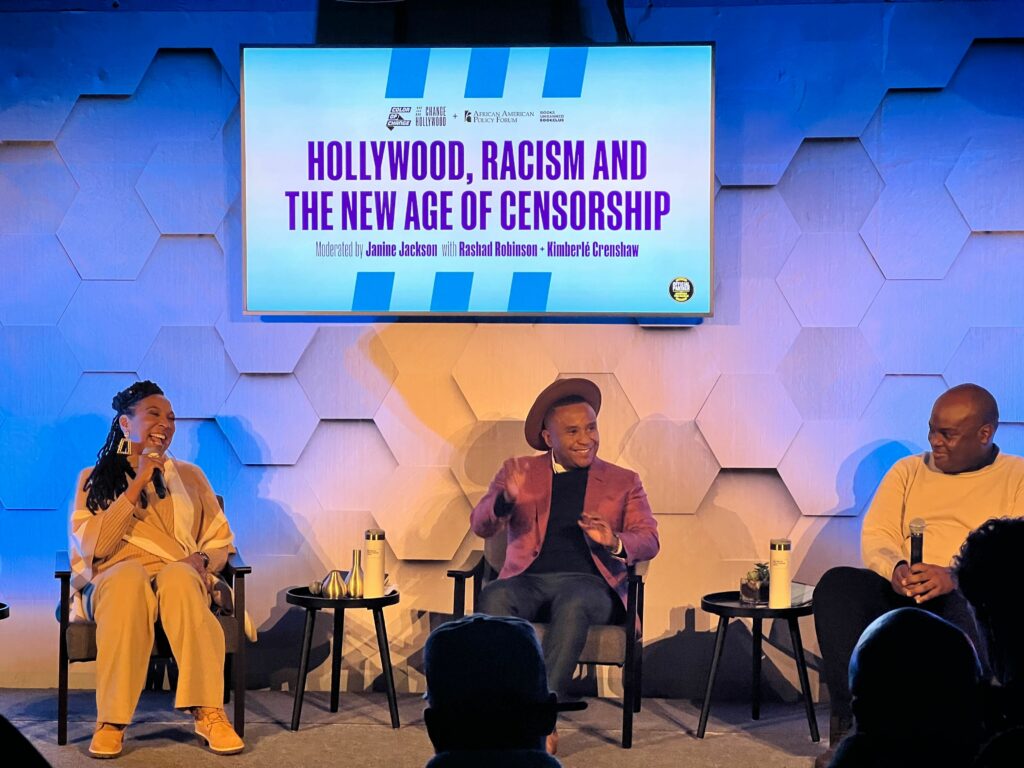COC Takes Its Message About Black Storytelling to Sundance Film Festival

By Aldore Collier
Few examples of glaring and enduring racism stand out more than in the motion picture industry, where stereotypes persist on screen and Blacks are underrepresented in the power jobs behind the scenes.
So, to promote solutions to decades-old inequities, Color Of Change ventured earlier this month to Park City, Utah, home of one of the largest and most prestigious film festivals — the Sundance Film Festival — to meet with and discuss solutions with the industry’s power players and influencers.
Color Of Change hosted “Hollywood, Racism and the New Age of Censorship,” a 90-minute program with COC President Rashad Robinson and law professor and scholar Kimberlé Crenshaw, founder of the African American Policy Forum. During the fireside chat-style session on Friday, Jan. 20, Robinson and Crenshaw addressed Hollywood’s role in historical and contemporary efforts to erase Black history from the national memory, as well as how censorship impacts storytelling. The goal: Inspire Hollywood to embrace more robust storytelling about race and history, resist the rise of white nationalism and fight efforts to censor Black history, including on the silver screen.

Crenshaw’s work as a law professor at both Columbia University and UCLA has been foundational, and she is credited with coining the terms “critical race theory” and “intersectionality.”
Among her many initiatives is Books Unbanned: From Freedom Riders to Freedom Readers, which has distributed thousands of banned books about Black history and Black historical figures to communities and book clubs across the nation. A two-week bus tour and book distribution last fall focused on the dangers of censorship in a democracy. It also helped to educate and energize voters prior to the midterm elections in November.
According to PEN America, nearly 1,700 books written by or about people of color and queer people were banned across the nation between July 2021 and June 2022. Similarly, nearly all of the 21 states that have enacted voter suppression laws also have introduced laws or policies to ban books.
Crenshaw and Robinson talked about the expansion of this censorship, its chilling effect on cinematic storytelling and how Hollywood must fight efforts to silence diverse storytellers.
As the nation’s largest online racial justice organization, Color Of Change has had an ongoing dialogue with Hollywood insiders and influencers on issues affecting Black people, including honest representation of Black people and our history in film and television. COC’s #ChangeHollywood campaign, part of its #ChangeIndustries initiative, is dedicated to changing the narrative of Black people on screen and eradicating racism in the film and television industries.
“We have invested a lot in our work in advancing racial equity through corporate commitments but also content and narrative change in Hollywood,” said Kelle Rozell, chief marketing and storytelling officer at Color Of Change. “Sundance is the place to be front and center with the creatives and the decision-makers that we are looking to work with to make these changes.”
More than 40,000 people attend the Sundance Film Festival each year, including celebrities, politicians and media representatives from around the world. Works by independent filmmakers are bought, sold and showcased during the festival that began Jan. 19 and runs through Jan. 29 this year.
In addition to the program with Robinson and Crenshaw, Color Of Change also hosted a cocktail reception during the festival on Saturday, Jan. 21, for about 100 special guests, including industry officials and celebrities, at a venue in downtown Park City.
“It’s important if you’re doing the work to be in the trade environment,” Rozell said. “It’s important for us to build relationships with the creators who want to do this work. It’s important that we have relationships with the decision-makers who determine which projects are greenlit. We can’t just have demands. We have to build relationships and have conversations with all these people because they are real stakeholders.”
The meetings also were a chance for COC leaders to talk with Hollywood executives about producing works that show the extraordinarily broad range of stories that exist within Black communities.
“There are a lot of stories that have not been told, that have been suppressed by Hollywood,” Rozell said. The recent films “Till,” a historical drama about the life and circumstances of the 1955 lynching of 14-year-old Emmett Till in Mississippi, and “Emancipation,” a drama about an enslaved man, Peter, who flees a plantation in Louisiana, offer some optimism, she said. “We need to make sure that Hollywood continues to tell these stories. Black history is American history and needs to be protected.”

